Impact of SDGs on Consumer Goods Sector: Unilever's Analysis
VerifiedAdded on 2022/07/28
|8
|801
|25
Project
AI Summary
This project analyzes the impact of Sustainable Development Goals (SDGs) on Unilever, a major player in the consumer goods sector. The analysis begins with an introduction to the 17 SDGs and their relevance to businesses, specifically focusing on Unilever's value chain and relevant goals like SDG 2 (Zero Hunger), SDG 12 (Responsible Consumption and Production), and SDG 13 (Climate Action). It then examines industry-specific standards and benchmarks, including environmental regulations and multi-stakeholder partnerships. The project identifies opportunities for Unilever, such as improving its value chain and leveraging consumer demand for sustainable products, and also acknowledges potential threats like increased investment costs. Recommendations are provided to close the gaps between current practices and industry standards, including eliminating plastic packaging, using renewable energy, and promoting hygiene campaigns. The project concludes by emphasizing the opportunities that SDGs offer to companies in the consumer goods sector and how Unilever can further enhance its sustainability performance.
1 out of 8
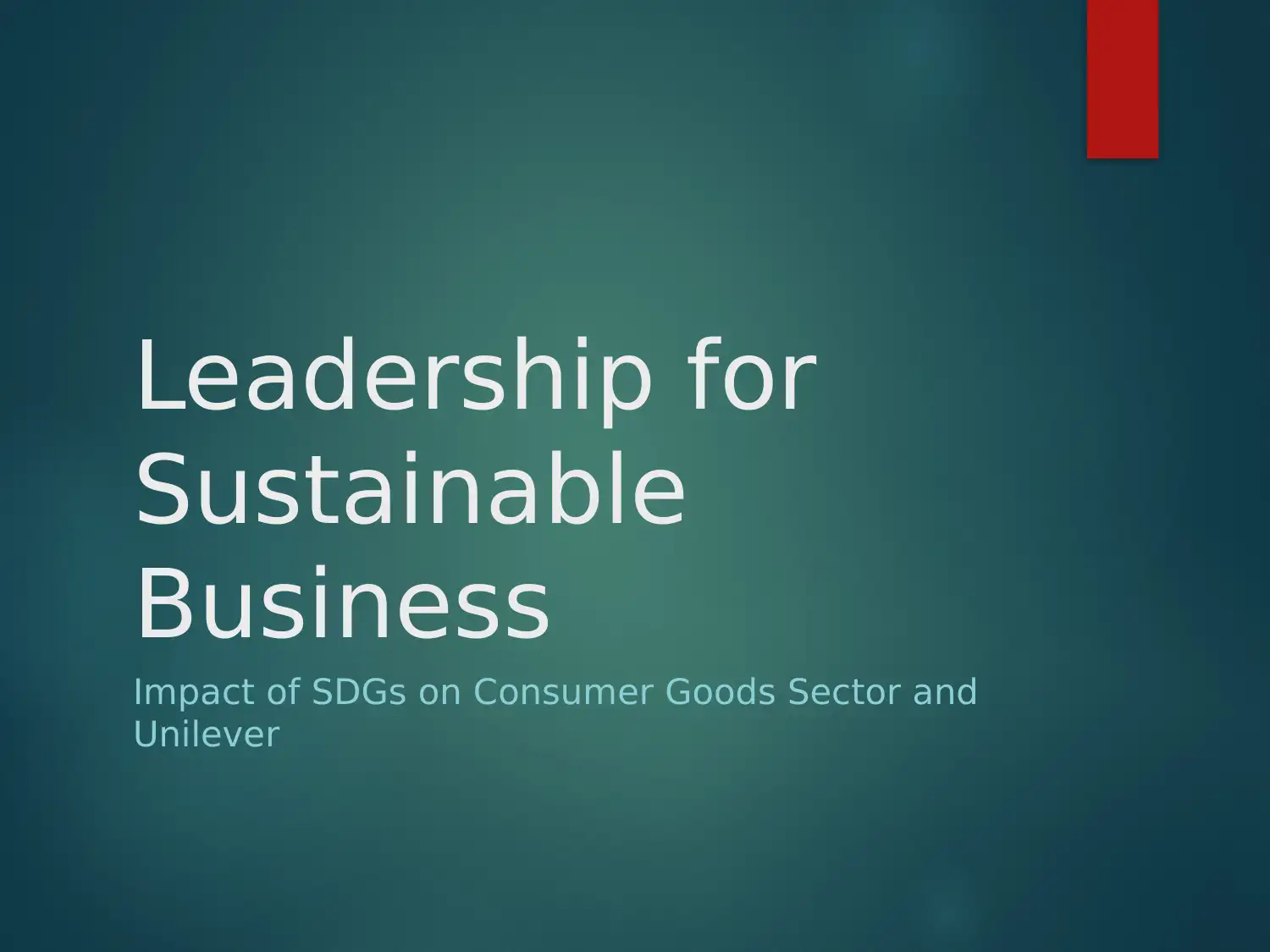
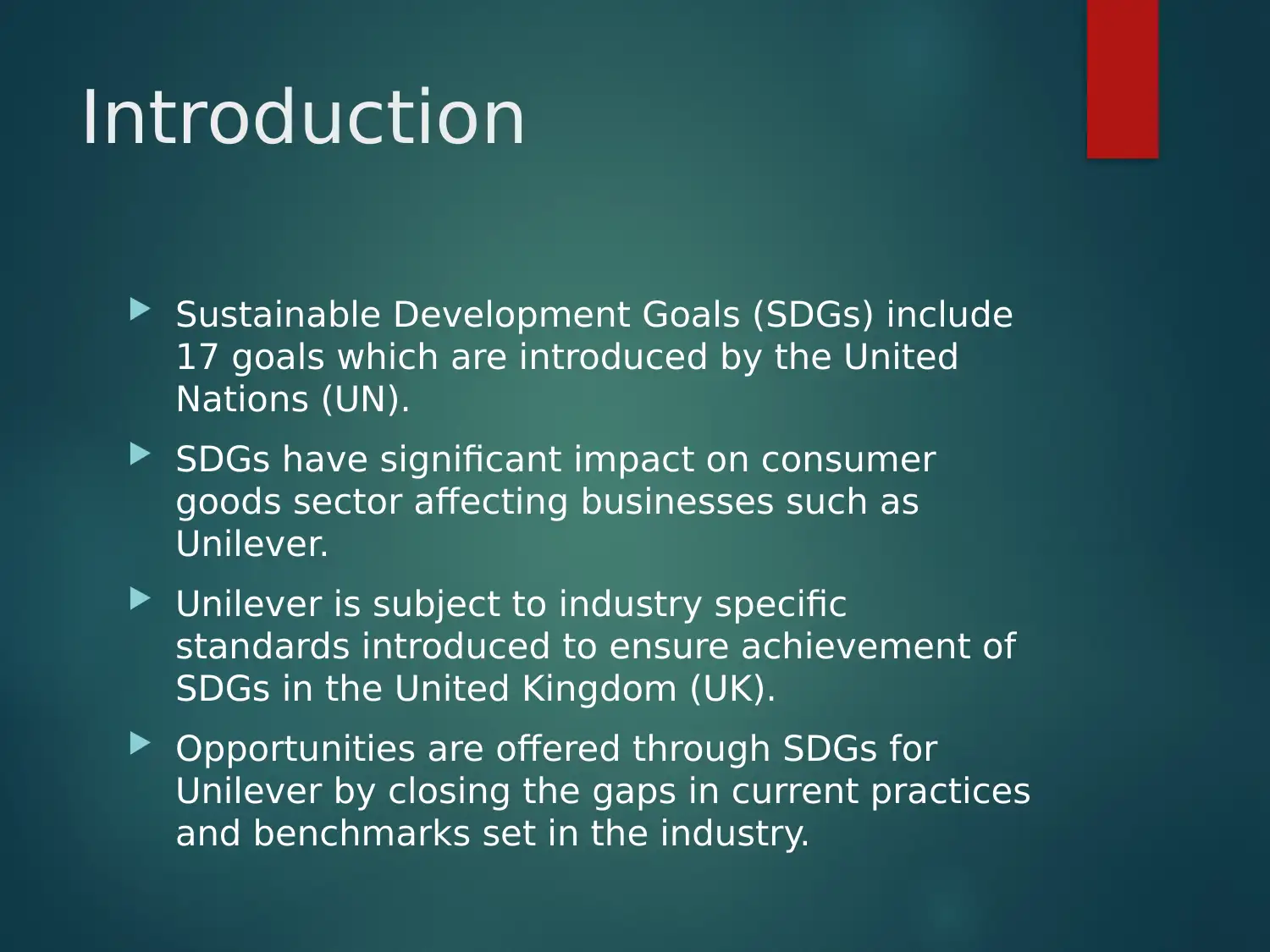
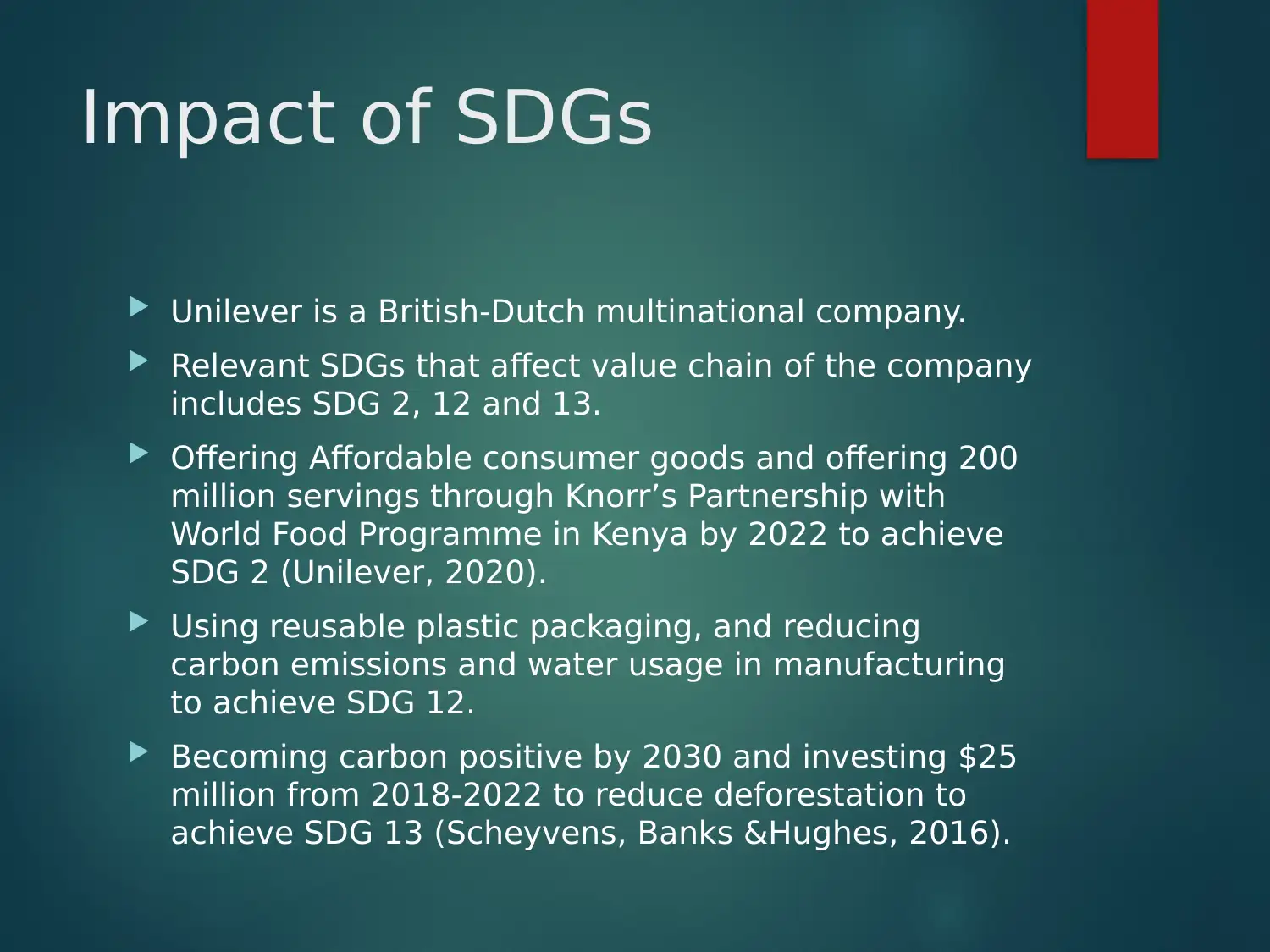

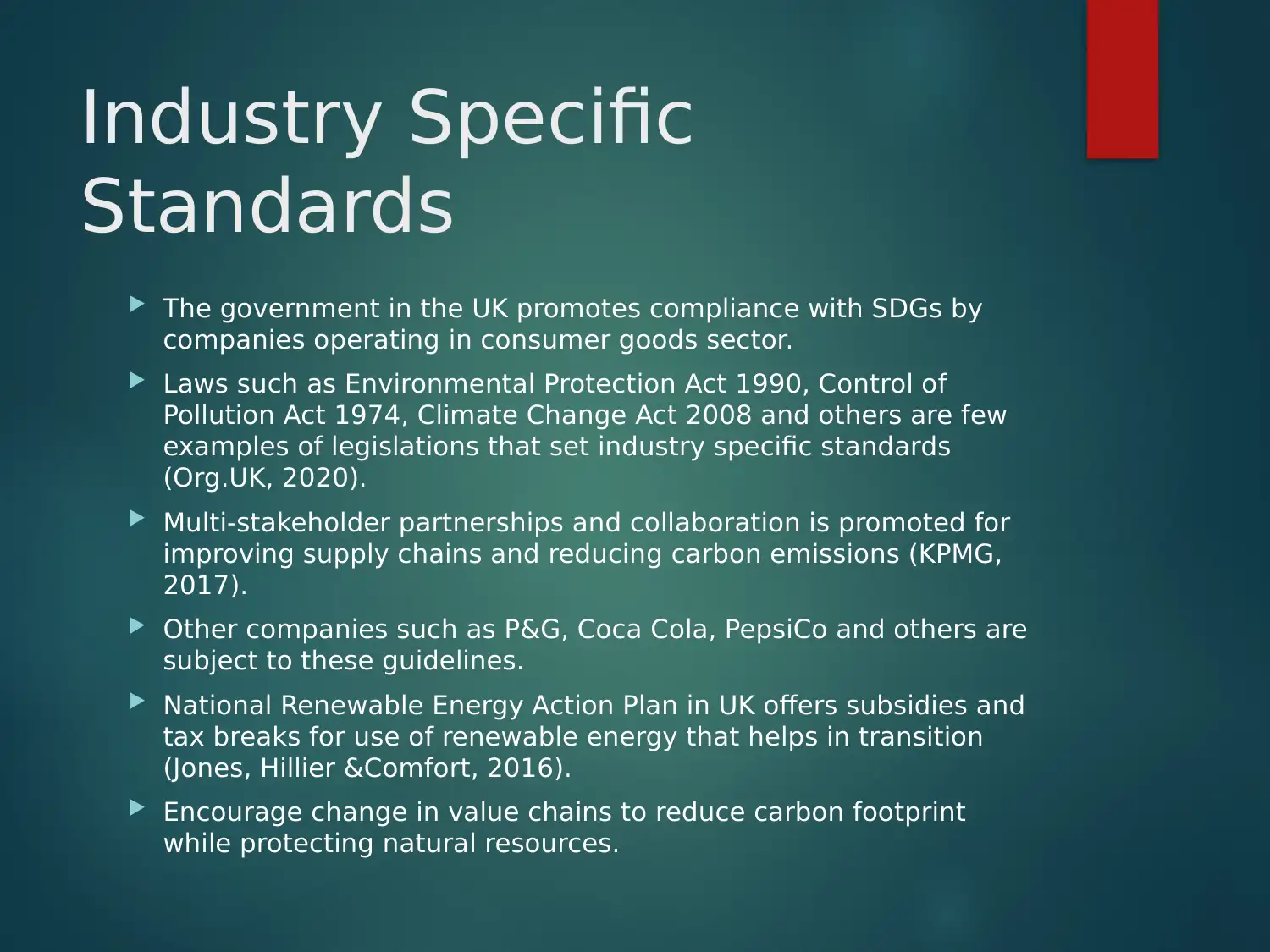
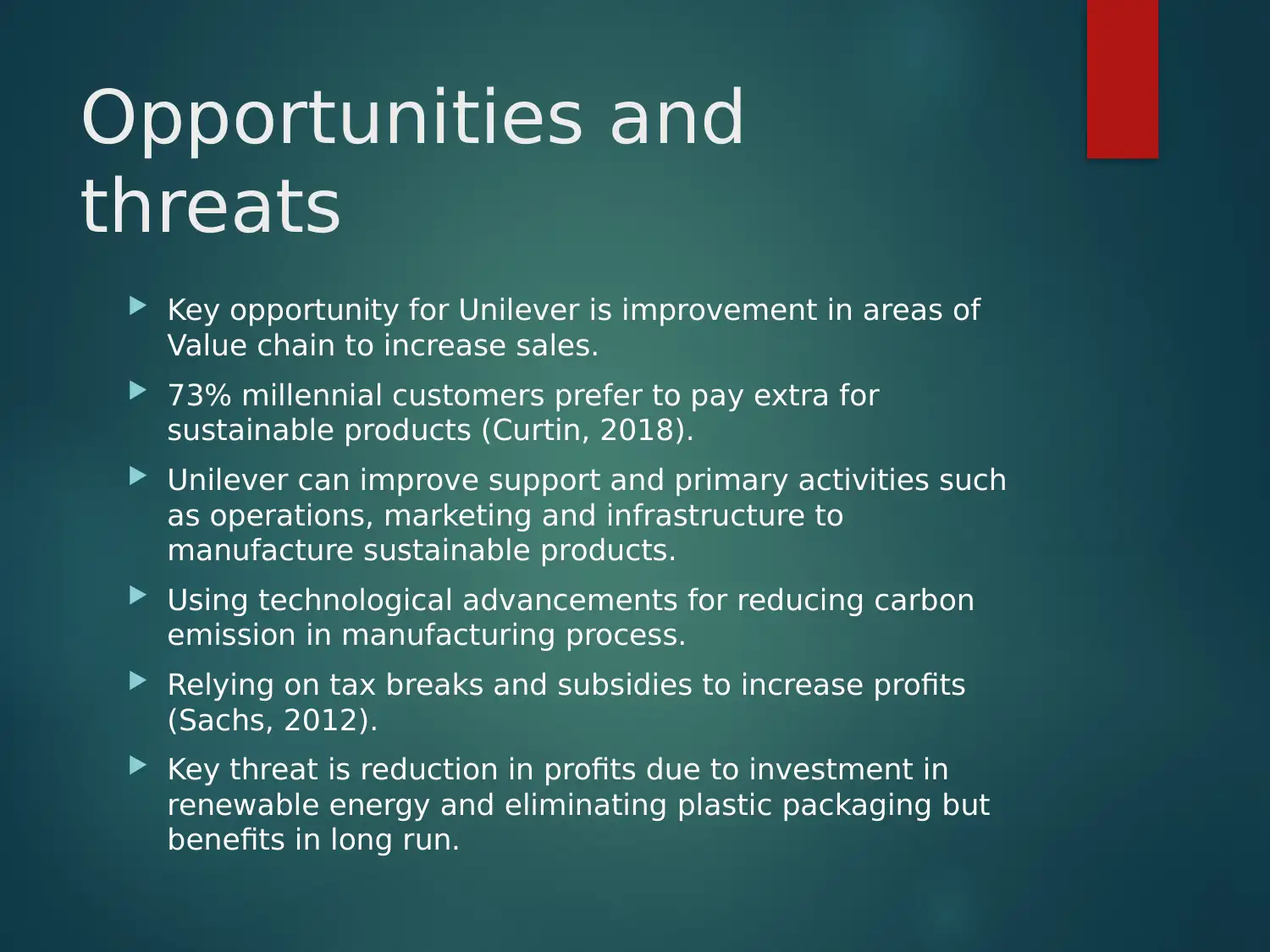
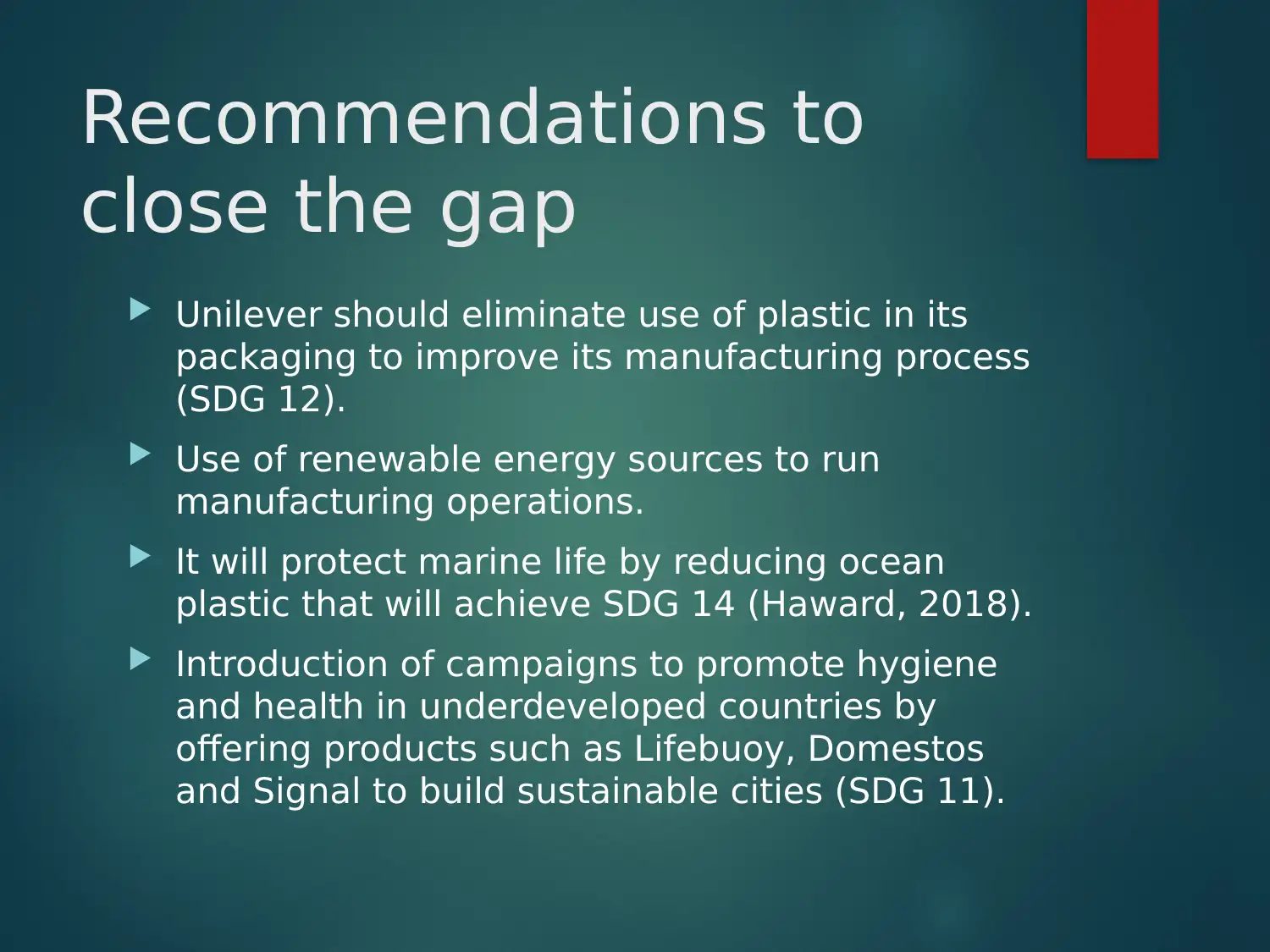
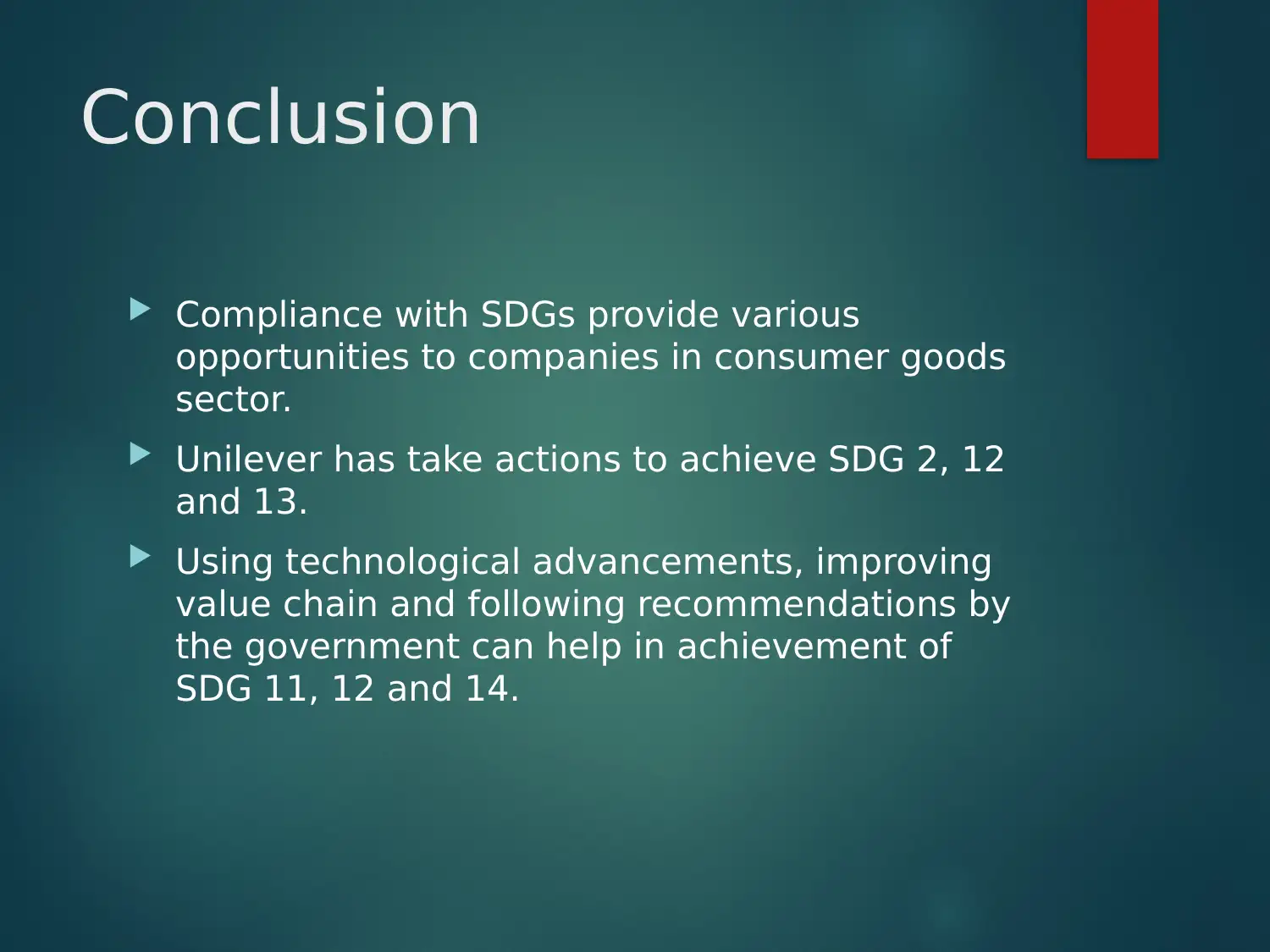
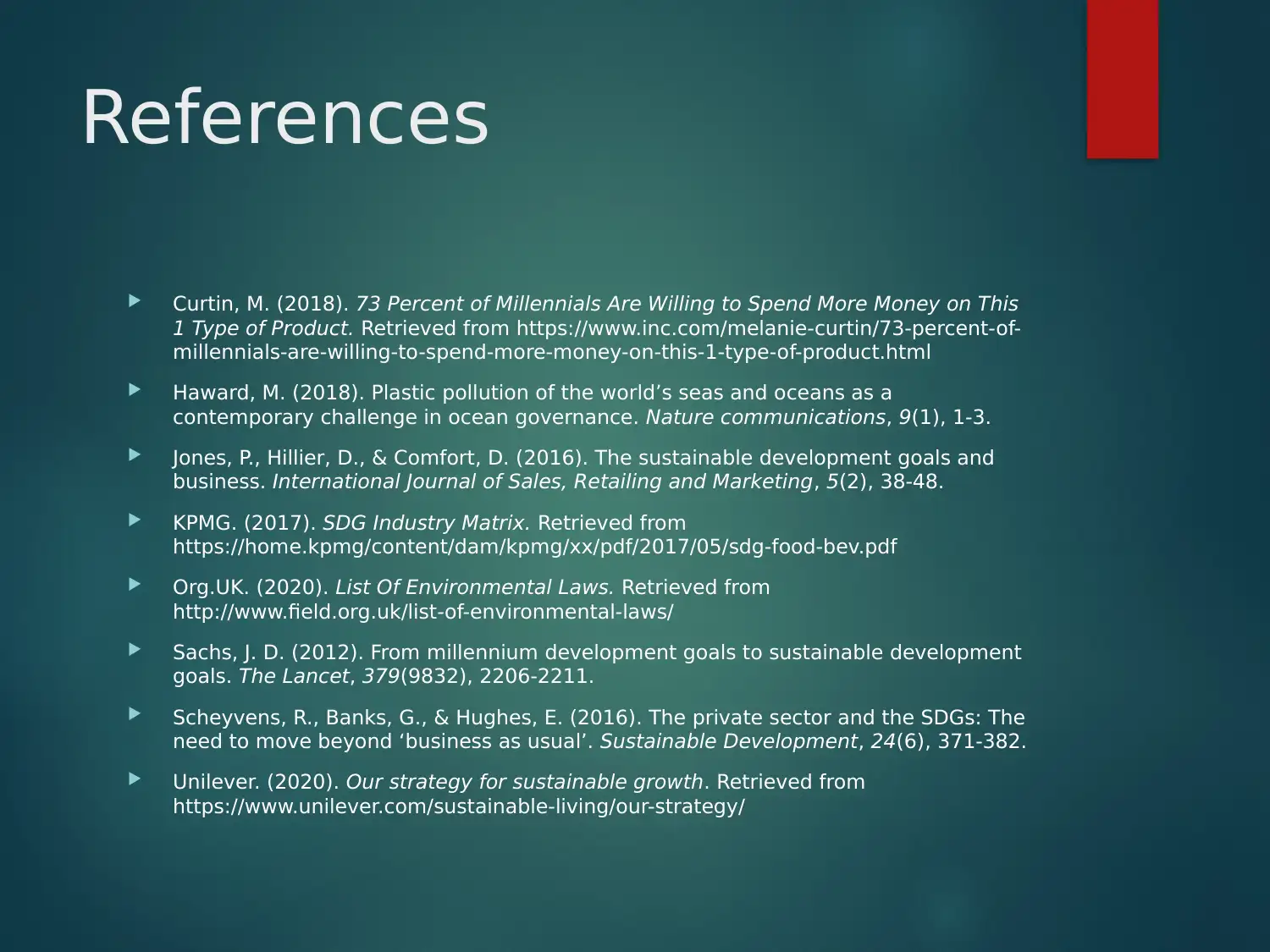






![[object Object]](/_next/static/media/star-bottom.7253800d.svg)